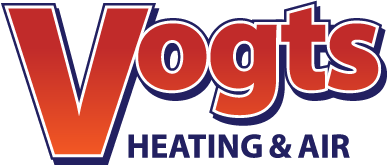Buying your first home is exciting. You’re probably trying to keep track of a dozen things or more to ensure you’re making the right choice. We believe that gaining insight into your future HVAC system is vital. The property’s HVAC system represents a significant investment and potential source of long-term costs, illustrating why a detailed inspection is important for first-time homebuyers.
In the following guide, we’ll share seven tips for discovering all there is to know about a home’s heating and cooling system. And if you want a deeper opinion from the experts, feel free to call Vogts Heating & Air. Our staff can weigh in on your options with industry insights you won’t find elsewhere.
1. What Type of HVAC System Is It?
Start by clarifying what type of HVAC system the home includes. Furnaces tend to last longer than air conditioners, and newer types of HVAC equipment like heat pumps can offer average life spans that are even longer. Tracking down the make and specific model ensures you have a much better sense of how much routine maintenance it might need.
2. How Old Is the Current HVAC System?
It also helps to learn how old the HVAC system is when you’re looking at a new home. In general, HVAC systems should survive for around 10-12 years. Knowing when it was installed helps you prepare for any needed servicing or when it might break down. Older systems are at a higher risk of problems, so fiscal planning for a replacement unit might be needed faster than expected.
3. Is the Warranty Still in Effect?
Don’t forget to look into whether the HVAC system is covered by a warranty. If it is, you’ll appreciate how it can lower maintenance expenses. HVAC warranties typically include parts and labor, but specifics will vary. Make sure you go over any terms that seem confusing to ensure you understand your coverage and the likelihood of out-of-pocket costs.
4. Has the System Ever Been Professionally Serviced or Maintained?
Next, examine the maintenance history of the HVAC system, if that information is accessible. This service history can reveal if there have been regular problems or how much upkeep was provided. Ask about records for key tasks such as changing the air filter, which is a positive sign indicating regularly scheduled tune-ups.
5. Do You Know Its Energy Efficiency Ratings?
Purchasing a home with a heating and cooling system with high energy efficiency can lead to lower utility bills and a smaller environmental impact. Locate the seasonal energy efficiency ratio (SEER) ratings for air conditioning and the annual fuel utilization efficiency (AFUE) for furnaces. Higher SEER ratings mean better cooling across the entire season, while higher AFUE ratings indicate that the fuel is efficiently converted into useable heat.
6. Have You Noticed Signs of Problems After Your Own Inspection?
Even without heating and cooling expertise, you can still take a moment to check out the HVAC system on your own. Watch closely for potential issues that might have been overlooked. This might consist of odd sounds, spots with uneven heating or cooling and attempts to hide any obvious damage.
7. Have You Sought Out Expert Advice?
If you’re still hesitant to make an offer because of the overall state of the HVAC system, it’s beneficial to get an assessment and recommendation from trained HVAC technicians. They are skilled at identifying things you might not, like refrigerant leaks, damage to the wiring or flawed ductwork.
A Call with Vogts Heating & Air Helps Take the Stress Out of Your Home-Buying Journey
Finding your first home ought to be exciting, and Vogts Heating & Air wants to ensure yours is too. Connect with us at 208-621-0129. We can go over the details about how our HVAC services help make this process smoother, giving you what you need to dive into home-ownership with confidence.
